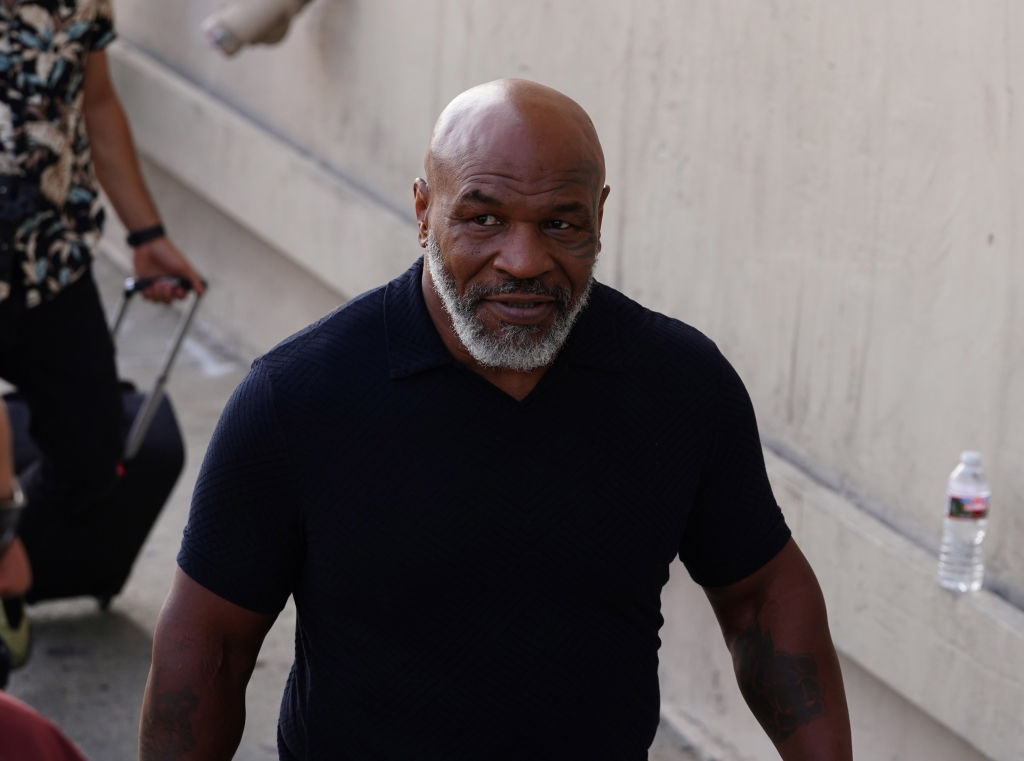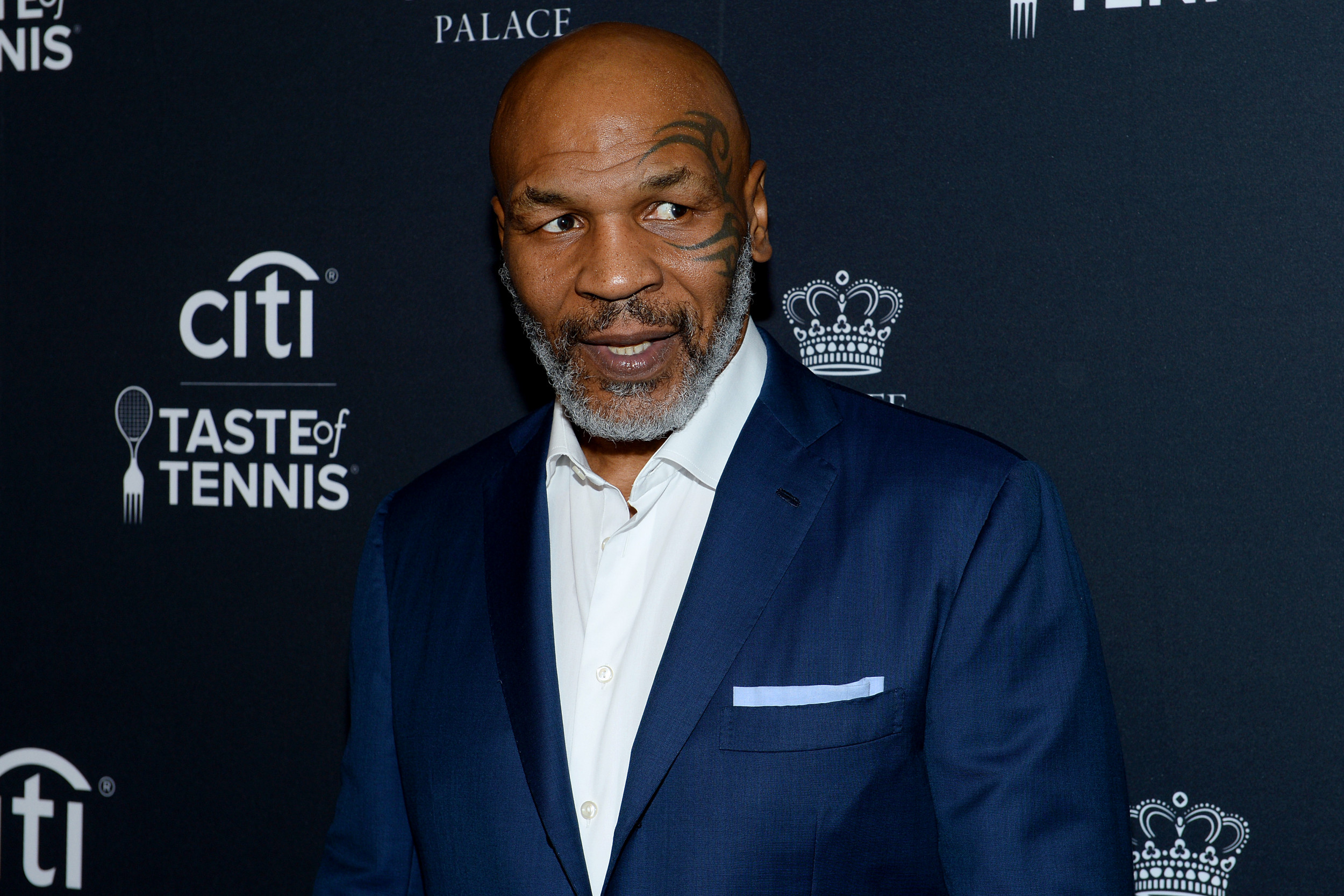Was Mike Tyson Guilty Of Rape? Unpacking The Controversy
Back in 1992, the world of boxing was shaken when Mike Tyson, one of the most iconic heavyweight champions, found himself at the center of a highly publicized rape trial. The allegations against him were explosive, and the case quickly became a media circus. Was Mike Tyson guilty of rape? It's a question that has lingered in the minds of many boxing fans and legal observers for decades. While the court delivered its verdict, the debate continues to this day, fueled by new perspectives and evolving societal norms about consent and accountability.
The Tyson rape case wasn't just a legal battle; it was a cultural moment that forced people to confront uncomfortable truths about power dynamics, fame, and justice. For some, the conviction was a clear example of a man held accountable for his actions. For others, the case remains shrouded in doubt, with questions about the credibility of the accuser and the fairness of the trial. Either way, it's impossible to ignore the impact this case had on Tyson's career and public image.
As we dive into this topic, we'll explore the details of the case, examine the evidence, and consider the broader implications of the verdict. Whether you're a Tyson fan or just curious about the legal and social dimensions of this case, this article aims to provide a balanced and informative perspective. So, buckle up and let's unpack one of the most controversial moments in sports history.
Read also:Don Lemons Journey His Net Worth Cnn Departure And Legacy
Here's a quick table of contents to help you navigate through the article:
- Biography of Mike Tyson
- Background of the Case
- The Trial
- Key Evidence
- The Verdict
- Aftermath of the Case
- Public Opinion and Legacy
- Legal Standards and Consent
- Impact on Tyson's Career
- Conclusion
Biography of Mike Tyson
Before we dive into the controversy surrounding Mike Tyson, let's take a moment to understand who he is. Born on June 30, 1966, in Brooklyn, New York, Tyson grew up in a tough neighborhood where violence was a way of life. His rise to fame wasn't just about boxing; it was about breaking free from a life of poverty and crime. Here's a quick snapshot of his life:
Early Life and Career
Tyson's journey to becoming one of the most feared boxers in history wasn't easy. He was small for his age and often bullied as a kid. It was his mentor, Cus D'Amato, who saw potential in him and transformed him into a world-class fighter. By the age of 20, Tyson became the youngest heavyweight champion in history, earning the nickname "Iron Mike."
| Full Name | Michael Gerard Tyson |
|---|---|
| Birthdate | June 30, 1966 |
| Birthplace | Brooklyn, New York |
| Weight Class | Heavyweight |
| Professional Record | 50 wins (44 by knockout), 6 losses |
Background of the Case
Now, let's rewind to 1991 when the controversy unfolded. Tyson had just lost his heavyweight title to Buster Douglas in a shocking upset. Feeling defeated and looking to regain his status, he attended the Miss Black America pageant in Indianapolis, Indiana. That's where he met Desiree Washington, a beauty queen and aspiring model. What happened next would change both their lives forever.
What Happened That Night?
According to Washington, after the pageant, Tyson invited her to his hotel room. She claimed that he forced himself on her, despite her repeated protests. Tyson, on the other hand, maintained that the encounter was consensual. The conflicting accounts set the stage for a high-stakes legal battle that would captivate the nation.
The Trial
The trial began in January 1992, with the prosecution painting Tyson as a ruthless predator and the defense portraying Washington as a gold digger seeking fame and fortune. The courtroom drama was intense, with both sides presenting compelling arguments.
Read also:Kristy Mcnichol From Family To A Life Beyond The Spotlight
Key Players in the Trial
- Desiree Washington: The accuser, who alleged that Tyson raped her in his hotel room.
- Mike Tyson: The defendant, who claimed the encounter was consensual.
- Prosecution: Argued that Tyson used his fame and power to coerce Washington.
- Defense: Claimed Washington was lying and had ulterior motives.
Key Evidence
During the trial, both sides presented evidence to support their claims. Here are some of the highlights:
Prosecution's Evidence
- Medical records showing injuries consistent with sexual assault.
- Testimonies from witnesses who claimed Washington seemed distraught after the incident.
- Photos of Washington's injuries taken shortly after the alleged assault.
Defense's Evidence
- Text messages and phone records suggesting a consensual relationship.
- Character witnesses who spoke about Tyson's reputation for treating women with respect.
- Arguments questioning Washington's credibility and motives.
The Verdict
After a long and grueling trial, the jury reached a verdict on February 26, 1992. Tyson was found guilty of raping Desiree Washington and sentenced to six years in prison. The decision sent shockwaves through the boxing world and sparked heated debates about justice and accountability.
Why Did the Jury Decide This Way?
Many legal experts believe the jury was swayed by the overwhelming evidence presented by the prosecution, including the medical records and testimonies from credible witnesses. Additionally, Tyson's volatile reputation and history of violent behavior may have played a role in the jury's decision.
Aftermath of the Case
Tyson served three years in prison before being released on parole in 1995. During his time behind bars, he reflected on his life and actions, eventually becoming a reformed man. But the damage to his career and reputation was done. He struggled to regain his former glory, facing numerous setbacks both in and out of the ring.
Impact on Tyson's Personal Life
Prison changed Tyson in ways he never imagined. He became more introspective and started exploring spirituality. He also worked on rebuilding relationships with his family and friends, who had been affected by the scandal.
Public Opinion and Legacy
Public opinion about the Tyson rape case remains divided. Some people believe he got what he deserved, while others think he was unfairly targeted because of his fame. Regardless of where you stand, it's hard to deny the case's lasting impact on discussions about sexual assault and celebrity privilege.
How Has Society's View Changed?
In the years since the trial, societal attitudes toward sexual assault have evolved significantly. The #MeToo movement has empowered survivors to speak out and hold perpetrators accountable. While Tyson's case predated this cultural shift, it laid the groundwork for important conversations about consent and justice.
Legal Standards and Consent
The Tyson rape case also highlighted the complexities of proving consent in court. Legal standards around sexual assault have become more nuanced, recognizing the importance of clear communication and mutual agreement. These developments have helped ensure that victims are taken seriously and perpetrators are held accountable.
What Defines Consent Today?
Consent is now widely understood as an enthusiastic, informed, and ongoing agreement between all parties involved. It cannot be assumed or implied, and it can be revoked at any time. These principles have become the cornerstone of modern legal frameworks addressing sexual assault.
Impact on Tyson's Career
Despite the challenges he faced, Tyson managed to make a remarkable comeback in the late '90s and early 2000s. However, his legacy will always be overshadowed by the rape conviction. For many, it serves as a reminder that even the greatest athletes are not above the law.
Lessons Learned from Tyson's Story
Tyson's journey teaches us that fame and fortune don't exempt anyone from facing the consequences of their actions. It also underscores the importance of accountability and the need for systemic change in how we address issues of sexual violence.
Conclusion
So, was Mike Tyson guilty of rape? The legal system said yes, but the truth is often more complicated than a simple verdict. What we can say for certain is that the case had a profound impact on Tyson's life, the world of boxing, and the broader conversation about sexual assault. As society continues to evolve, so too must our understanding of justice and accountability.
If you found this article informative, feel free to share it with your friends or leave a comment below. And don't forget to check out our other articles for more thought-provoking content!
Article Recommendations


